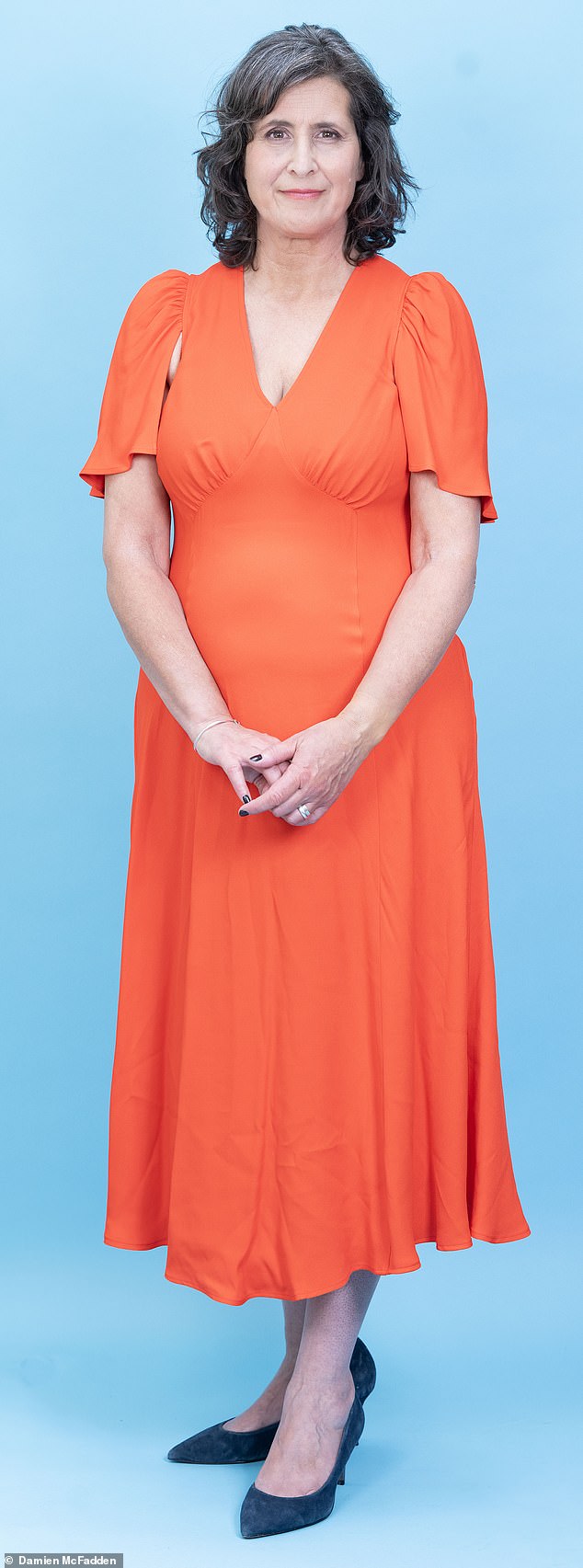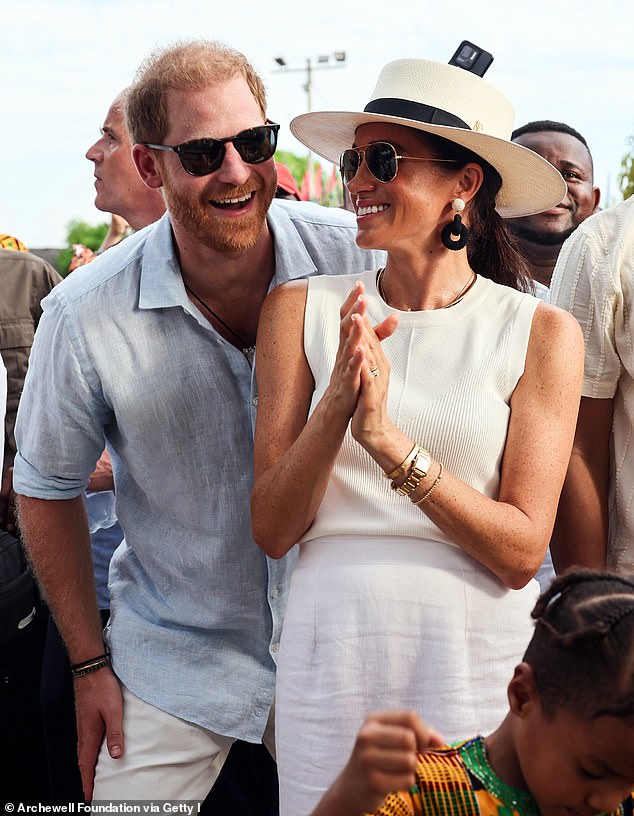First came a warmth that flushed through my whole body, an exhilarating sensation that made each and every one of my nerves tingle. Then, a vibrant rollercoaster of shapes and colours, wheeling and turning at speed – before a wave of uncontrollable giggling took over.
This, then, was my very first ‘trip’ on magic mushrooms.
But I was no teenager at my first rave. Far from it: a 56-year-old married mother of two, I’d started my career as a teacher and ended up becoming head of HR at a software company. And while I’d always been sociable, the only drug I’d ever taken before this was gas and air when I was giving birth.
Yet here I was, at a psychedelic retreat in a small village in northern Europe – but this wasn’t so much a mid-life crisis as a last-ditch attempt to heal.
I had been poleaxed by grief after the death of my beloved older sister, Alice, from breast cancer at the age of 55 in 2021.
Emotionally shattered, I was then made redundant. Everything in my life had been turned upside down and I felt utterly lost.
But could taking mind-altering drugs – specifically psilocybin, also known as magic mushrooms, a Class A drug – really help?
I was desperate enough to find out, thanks to intense waves of sadness which had made me feel like I was submerged in darkness. Alice’s death had been the terrible conclusion of almost two decades of her fighting breast cancer. At the time she was first diagnosed, aged 36, she had three young sons.

Bridget Rose said she has always been open to alternative methods of healing before embarking on her psychedelic journey

Bridget, left, with her sister Alice. The siblings had a strong bond in childhood and remained close until Alice’s death in 2021

Dried magic mushrooms. Researchers are increasingly looking into the potential benefits of ‘micro-dosing’ in treating mental disorders such as depression and anxiety
I was devastated. I had two sisters and was close to my younger sister Jo – but Alice and I had always had a special bond.
This continued into adulthood: for a time I lived in Oxfordshire with my husband Luke and our two children, Joseph, now 22, and Emelia, now 20, while Alice lived in Altrincham, Greater Manchester. We would call each other three times a week and sit on the phone, watching television together.
Then at Christmas 2003 we were all together in our mum’s kitchen when Alice broke the news she had breast cancer.
This was like a nuclear bomb going off in our family. We all wept – and then tried to work together, for Alice and her boys.
Mum took the brunt of the care, sleeping on the floor next to Alice after her chemo. I moved in for a short period, to act as a kind of nanny to her children.
Eventually, doctors said Alice was in remission – only for it to return twice more. Her second diagnosis came in 2014. Just weeks before her third diagnosis in 2017, Jo, Luke and I took her on holiday to Lanzarote.
She’d had the all-clear from her second bout of cancer five years earlier and was doing well – she felt healthy and had started running.
However, she then hurt her back moving a pot in the garden. When we were away, there were worrying signs all was not well. She would lie on her lounger in the blazing sun with a hot water bottle on her back in search of relief.

Bridget, right, and Alice pictured together in the 1980s. Alice’s death had a profound impact on Bridget, leading her to seek alternative methods of healing

Bridget says the mushroom retreat helped her to accept her grief and cope with it better
When she got home, I took her for a scan – only to discover her cancer had returned, spreading from her breast to her bones, fracturing her spine in the process.
Before she died, she managed to write us a letter, which we all read together by her bedside. It was an experience I will never forget; the sheer rawness of confronting such an imminent loss.
She wrote about her happy childhood, hearing Dad play the piano and the smell of Mum’s delicious fudge. It was a letter so full of her warmth and humour.
That sense of humour was evident when I stayed in hospital with her for the last time, sleeping on the floor beside her bed. The last day of my stay was her 55th birthday – what was to be her last birthday. I decorated her room with bunting and brought in her presents. I have a video of her opening my parents’ gift and she turns to the camera and says: ‘I wonder what they’ve got me? A five-year diary perhaps?’
We laughed very hard, but it was simultaneously devastating. My whole family and I were there when the sun streamed in the window and Alice took her last breath at home in her bed.
Four years on, I miss her profoundly every single day.
After her death, I found I was suffering from horrendous menopause symptoms – a combination of anxiety and brain fog, which became a living nightmare when coupled with my grief.
My job as head of HR was demanding, but I couldn’t focus.
Then, abruptly, in July 2023, after 14 years of working for the company, I was made redundant.
This, married with Alice’s death, left me unmoored. What would I do? Who could I rely on now?
I’d always been interested in alternative medicine, and was open-minded when it came to health matters. So when a trusted friend mentioned he’d been on a psychedelic retreat and had found it really beneficial for his depression, I was naturally intrigued.
While I had heard of psilocybin, I had not realised it could also be used therapeutically. Indeed, authorities are under increasing pressure to allow the use of magic mushrooms in a micro-dose (up to 0.5g) to treat depression and anxiety, after small clinical trials have shown the benefits.
Some experts say the way psilocybin puts patients in a dreamlike state makes subsequent therapy more likely to succeed.
I was actually known for being a bit strait-laced when I was younger, and I’ve always been careful about what I put in my body, rarely drinking and avoiding ultra-processed foods. I didn’t even take paracetamol unless I absolutely had to.
Still, when I told my husband and family, they were supportive. I think they knew how much I’d been through.
And so in the summer of 2023, I found myself in a pretty village with a river running through it, for a psychedelic retreat which cost me around £150 for a five-hour session. Held in a yoga centre, it was led by a warm and down-to-earth couple. With just six participants it was very intimate. Everyone was open but not in the least hippyish. And with the others a similar age to me, I felt comfortable.
When we arrived, we sat in a cosy lounge while the leaders explained what would happen. They told us we’d drink a tea – the mushrooms are steeped whole in hot water – and explained everyone reacts differently but that we might experience some physical changes, such as feeling shivery, within 10-15 minutes of drinking it.
Then, in a larger room, we were encouraged to create a nest about two metres apart from one another using blankets and cushions.
There was a short prayer, invoking spirit guides, angels and calling to Mother Earth before everyone was handed a cup of the tea. The brew was light brown with mushrooms with long stalks and pointed heads floating on top. Because psilocybin is water-soluble, you should feel the effects more quickly when it’s prepared this way.
Amazingly, I wasn’t scared. I was completely in the moment – I wasn’t even thinking too much about Alice. The tea was rather unpleasant and smelt like damp woodland. At first, there was just a strange stillness and the steady beat of music – a mix of drums, flutes and chants layered with a deep, pulsing bass.
I felt a bit nauseous and cold but then, about 15 minutes later, the visuals started, that vibrant tidal wave of shapes and colours. I walked to the bathroom and the tiles on the wall looked like they were breathing, colours pulsed and shifted. This didn’t frighten me – instead, I remember enjoying it and feeling entertained.
A wave of laughter rose within me, coming from nowhere. Thankfully, the background music was so loud it masked it.
The music played a huge part in my trip. I felt it through my chest, my limbs, the floor, and it gave the visuals shape, texture and depth.
Then came a warmth through my whole body, like my nerves were glowing. I felt like I was on a rollercoaster, rising and falling with joy and euphoria.
I experienced an unforgettable three hours before these visuals faded and I drifted into a quieter state. It was almost as if I was surrounded by nothingness. That’s when the emotion hit me.
I ‘woke up’ in my ‘nest’ to find myself sobbing. Not gentle crying, but full, heaving sobs into my pillow. It was as though I’d reached the heart of myself. And I was deeply, unspeakably sad.
I tried to stay quiet, as I didn’t want to ruin anyone else’s experience or draw attention to myself. But I felt hot, and emotionally raw.
Eventually, I was aware they had stopped the music and opened the curtains, somehow breaking the spell. We’d been tripping for around four hours.
We gathered in a circle to share, but I couldn’t speak. I felt broken and just wanted to leave. One woman was howling.
I travelled back to my Airbnb, feeling down. Yet it was still like the colour volume had been turned up on everything – the scenery was so vibrant.
I had expected immediate elation and answers about what my life should hold, and how to move forward. But I felt emotionally bruised. I arrived home subdued and my family were concerned.
In hindsight, it was unrealistic to expect transformation to come so quickly.
Yet in the weeks and months that followed, I began to understand my melancholy, not just as grief for my sister, but as something more deep-rooted.
I was mourning the loss of my happy childhood, the wonderful times I had spent with my sisters that I could never recreate.
Now Alice was gone. And I was unemployed and adrift. At times like this, I would have rung Alice for her support – and not being able to do this just underscored my grief.
Finally recognising my loss, triggered in part by the mushrooms, helped me accept it, as trite as that may sound. I made peace with the fact there would be days when I was very sad; I accepted that grief ebbs and flows. It helped reframe things.
Eventually, after the retreat, I launched The Cut Flower Club, an online community where I advise others on how to turn a few seed packets into a garden full of colourful blooms.
Alice loved flowers – when she was unwell she used to sit on the sofa swing in her garden while I tended her beds for her.
Today, I wouldn’t rule out another psychedelic retreat. That acceptance of my sadness – rather than simply trying to feel better and happy again – was such a powerful life lesson.
These days I’m not sure I believe in death the way I used to. I don’t think we’re ever truly gone. I believe the people we love stay close. Sometimes I feel Alice with me, her presence is so strong.
It was the retreat that put me on this path to healing. It triggered a change in me, but not one I could ever have foreseen.
Follow Bridget’s gardening advice at thecutflower.club
Interview by Jan Disley







